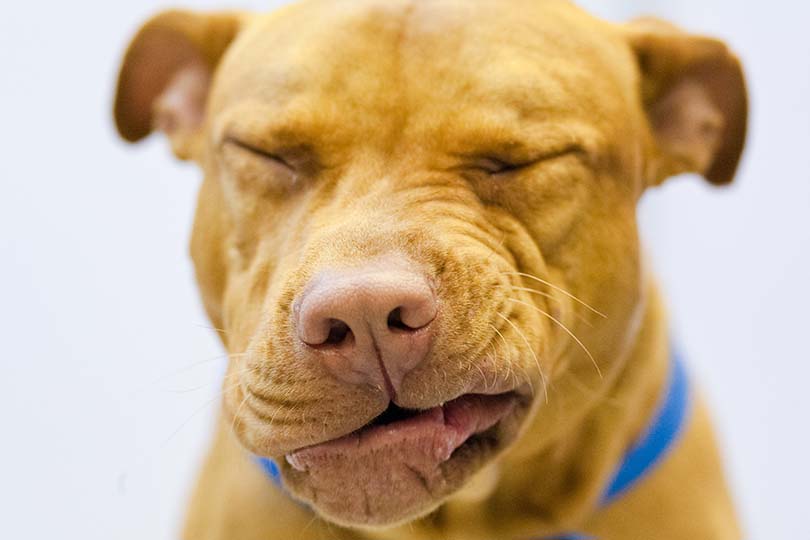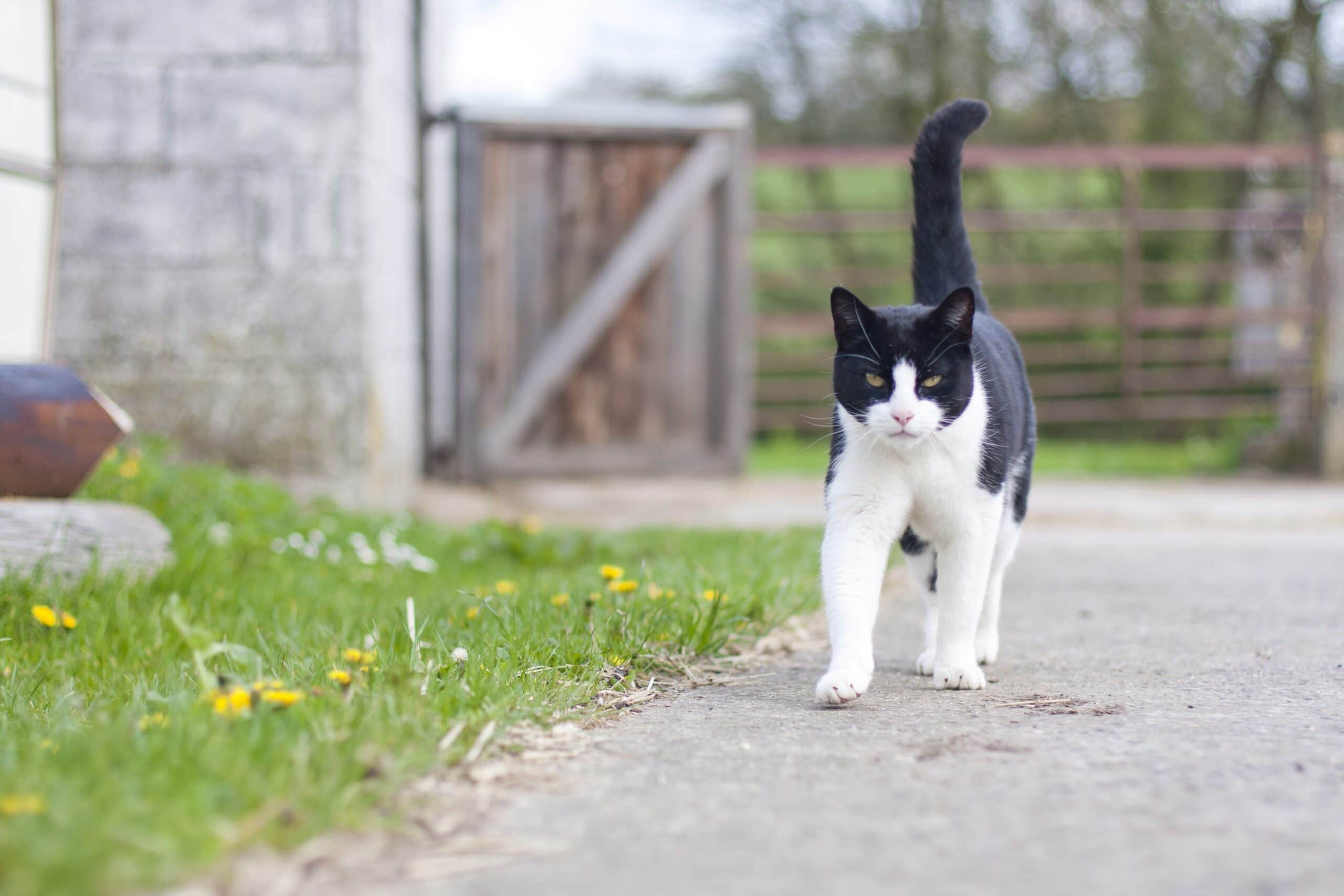VET APPROVED

The information is current and up-to-date in accordance with the latest veterinarian research.
Learn more »While occasional sneezing is considered normal in dogs, in general, any behavior that is done repeatedly is an indication that something more is going on. There are many reasons why a dog might be sneezing so much, and while some of them are not very serious concerns, others may represent serious health conditions. We will go through the most common reasons for your dog’s sneeze attacks and provide you with some information to help you properly care for your dog.

What Is Sneezing?
Sneezing is a defense mechanism of the body. It’s a powerful and sudden expulsion of air from the nose and mouth, done in an effort to expel an irritation, like dust or other particles, out of the lining of the nasal cavity.
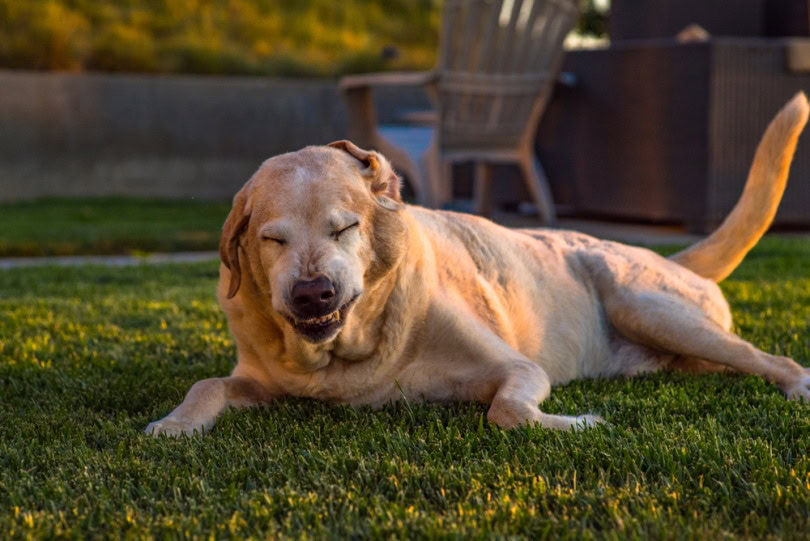

The 8 Most Common Causes of Sneezing in Dogs
1. Foreign Body in the Nose
Dogs like to sniff a lot. Sometimes, through sniffing, they can get a grass blade or other plant material, insects, or dirt inhaled through their nostril. Usually this material gets stuck inside the nasal cavity, and oftentimes it’s not visible on the outside. When there is a foreign body inside one nostril, the sneezing will start abruptly, continue intensely, and will often present as sneezing fits that come and go. In some cases, there can be blood coming from that nostril, due to intense sneezing.
- Sneezing caused by a foreign body inside the nasal cavity occurs very suddenly, and does not improve on its own.
- There may also be blood coming from the nostril during or after sneezing, or signs of an infection, such as nasal discharge, if the condition is left untreated after a few days.
- A foreign body in the nose needs to be removed by a veterinarian under anesthesia.
2. Airborne Irritants
Some substances that pollute the air in your pet’s environment can irritate their nose and cause sneezing. Air diffusers, scented candles, perfumes, dust, cooking with chilis and other spices, pesticides, and fertilizers all can be the cause.
- Sneezing from airborne irritants does not usually present with other signs.
- Sneezing should stop a short time after the dog or the irritant is removed from the area.
3. Allergies
Allergies develop when your dog has become hypertensive to a certain protein that can incite an allergic reaction. Seasonal allergies tend to be caused by pollen present in the environment during a certain time of the year. Other environmental allergies can be caused by mold, dust, and dandruff, which can be present year-round.
In addition, food can also be causing an allergic reaction. Although food allergies usually present as skin or gastrointestinal signs, in some rare cases they can cause sneezing. Allergies require veterinary investigation and the management varies depending on the cause.
- Hypersensitivities develop over time. Your dog might have not been allergic to a certain allergen before, but now they have developed an allergy. It cannot be cured, so it needs to be managed.
- Allergies tend to present with other signs such as red, watery eyes, itchy skin, runny or stuffy nose, and, in some cases, even swollen eyelids.
- Diagnosing and finding the cause of an allergy to properly manage it will require some investigation and it is highly recommended to take your dog to the veterinarian to help with the specifics of their case.

4. Infection
Nasal and respiratory infections caused by bacteria, viruses, or fungus can all be the cause of constant sneezing in your dog. In some cases, infections of a tooth can also drain into the nasal cavity. Some infections are more serious than others, and some are also more contagious.
- Your dog needs to be seen by a veterinarian that will prescribe an appropriate treatment according to the causative agent. Cooperate and follow the veterinarian’s prescription without making any changes.
- Infections tend to present with other signs such as yellow, green, or sometimes even bloody nasal discharge, reduced appetite, or the lack thereof.
- Some respiratory infections are highly contagious, so it is better to isolate the dog from other pets, immunocompromised individuals, and kids until the dog is checked by the veterinarian.
5. Nasal Mites
Nasal mites are small parasites that get into a dog’s nasal passage and spread easily between dogs. Nasal mites are parasites of the species Pneumonyssoides caninum or Pneumonyssus caninum and are found all over the world.
- Nasal mites can cause severe irritation and inflammation to the dog’s nasal passage (hence the sneezing) with other signs such as bloody mucus discharge, or nosebleed, reverse sneezing, and itchy face.
- Your dog can transmit the mites to other animals but not to humans.
- The veterinarian will need to check your dog and, in some cases, perform a nasal flush or even nasal endoscopy for diagnosis. The veterinarian will prescribe antiparasitic treatment to your dog.
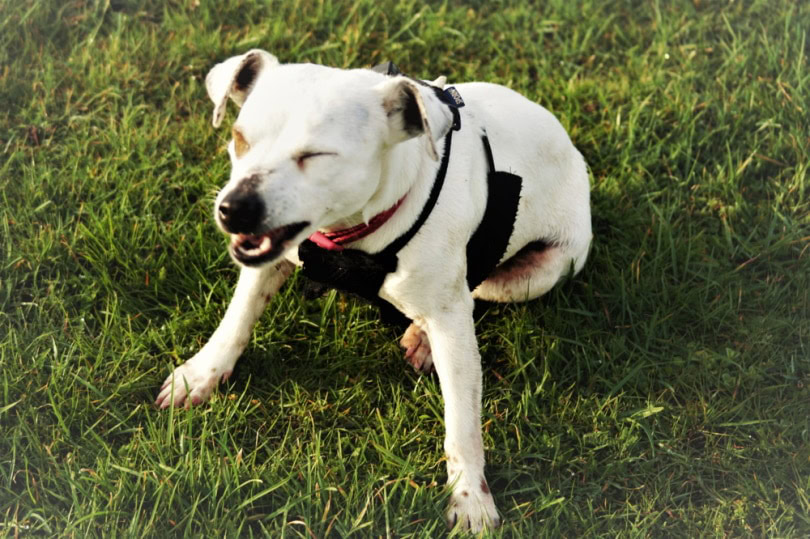
6. Nasal Tumors and Polyps
Especially in older dogs, nasal tumors can be the cause of sneezing. Nasal tumors are small masses growing and developing in the nasal passage. Polyps on the other hand are benign growths that also may occur in the nasal cavity, but are not that common. Your vet can distinguish between polyps and tumors based on a tissue biopsy.
- The main characteristic of nasal tumor sneezing is that it tends to develop and worsen over time.
- Sometimes nasal tumors present with unilateral bleeding of one of the nostrils.
- Nasal tumors can be benign or malignant, so the veterinarian needs to decide on appropriate treatment. Sometimes they need to be removed, and some cases might need chemotherapy.
- Nasal tumors are more common in dogs with long nasal passages.
7. Breed
Brachycephalic or flat-faced dog breeds such as Bulldogs, Pugs, and Boston Terriers are more prone to sneezing and other respiratory issues due to the anatomy of their nasal passage.
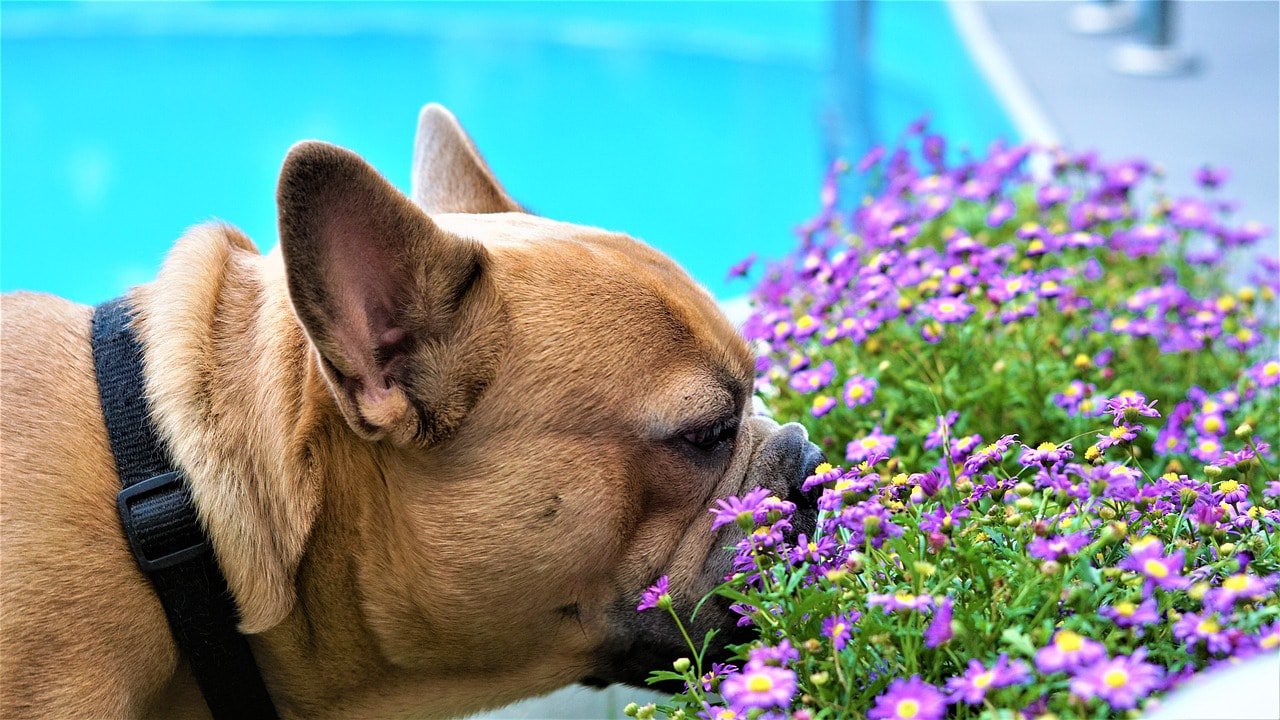
8. Dog Communication
In some cases, sneezing is also part of the dog’s social behavioral repertoire. A dog can sneeze when it is playing, signaling excitement or happiness. Sneezing has also been observed as a behavior entailing submission to other dogs or humans.


Final Thoughts
The occasional sneeze in your dog is normal behavior; it’s a natural defense mechanism of the respiratory system and, in some cases, it is also part of the dog’s social behavior. However, if your dog is sneezing too much, it is usually due to an underlying cause. If you suspect the sneezing is caused by an irritant, try removing the irritant or dog from the area. If the dog continues sneezing a lot, it is best to take them for a veterinary consultation to find the cause of the signs and give appropriate treatment to help your dog (and you) breathe in peace.
Featured Image Credit: memorable9, Pixabay
